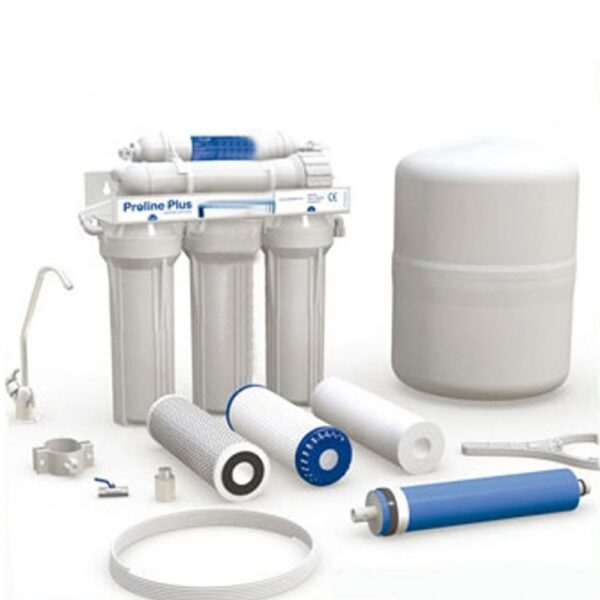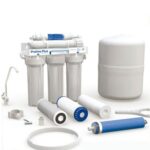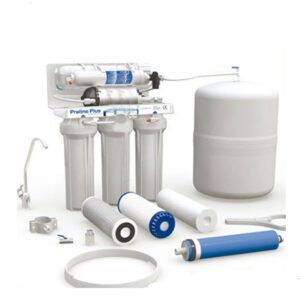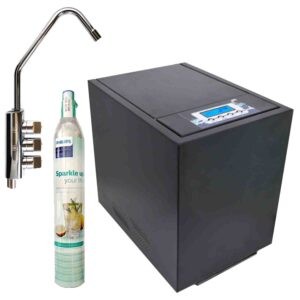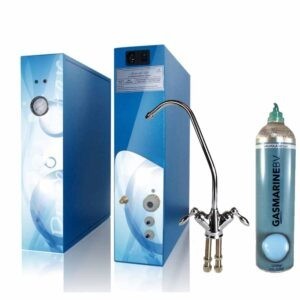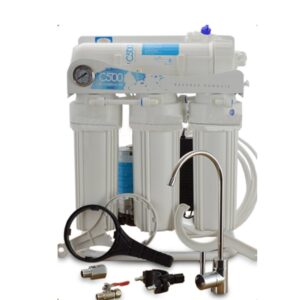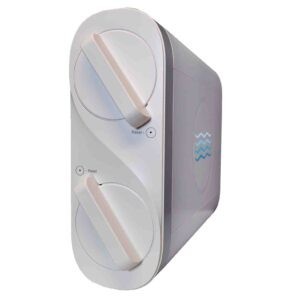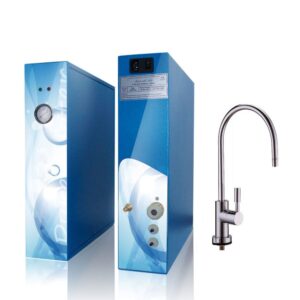Natural or direct osmosis is the most common in nature, since most of the organisms contain semi-permeable membranes for instance plant roots, organs in our body, cellular membranes etc.)
When two solutions with different concentrations of salts are separated by a semi-permeable, there is, naturally, a flow of water
from the solution that has a lower concentration of salts to that of higher concentration.
This flow continues until concentrations on both sides of the membrane are equal.
If this process was to be reserved in order to obtain a flow of water with a lower concentration of salts from higfher
concentration one, it would be necessary to apply sufficient pressure against the membrane with the water with higher
concentration, in order to stop this tendency and natural flow of the system.
This process is called reverse osmosis.
At present, reverse osmosis is the best method to produce pure water via a physical system (without using chemical products).
As has been explained, its working principle is based on that of our own organism, where water is distributed by natural
osmosis.
Features
– Without pump HxLxP: 400x410x140 mm.
– Tank diameter x H.: 260×400 mm., Tankpac NSF approved.
– Input temperature(MAX.~MIN.): 40°C~2°C
– Input TDS(MAX.): 2.000ppm
– With out pump input pressure(MAX.~MIN.): 2,5~6bar
– Nominal production: 175 LPD
– Max. water storage: 16 liters (precharged tank @ 7PSI or 0,5 bar)
Components
– 3 Housing 10” white with:
– 1 melt blown polypropylene cartridge 9-3/4″-5 micron
– 1 granular activated carbon cartridge (GAC) 9-3/4″
– 1 carbon block cartridge 2,5″ x 9-3/4″ – 10 micron
– 1 In-lne Post-carbon 2”x 10″
– 1 Membrane: 1×1812 50GPD Filmtec
– 1 way chrome faucet.
– Drain connection kit.
– Wall adaptor and ball valve for input water.
– Housing wrech.
– Tube 1/4”
Features of cartridges



Maintenance recommendations
– sediment pre-filter: maximum 12 months
– carbon pre-filter: maximum 12 months
– reverse osmosis membrane: every 3 year approx. in soft water <15 °f
– post-filters: from 12 to 24 months
– hygienisation: every 6-12 months. Each time components in contact with water are accessed or water has not been consumed
for more than a month.
Warning
To regulate the TDS it is necessary to add the by-pass in the installation.






